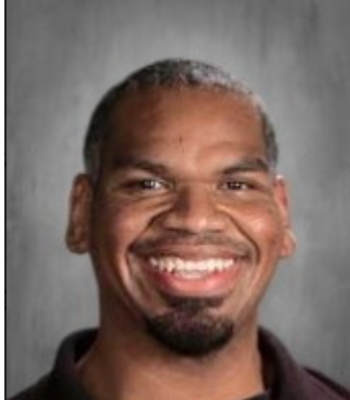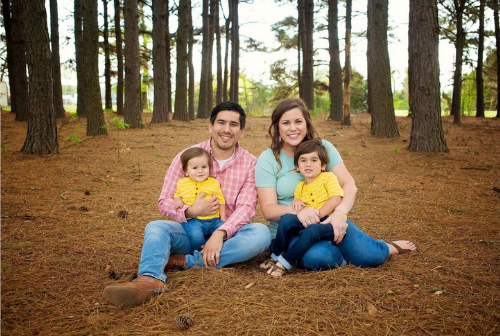“Be safe, make good choices and have fun.” These were the last words teachers all over East Texas said as their students unknowingly left their rooms for the last time in March 2020.
Those see-you-later moments became a nightmare for teachers, students, administrators and families during the worst months of the pandemic.
Although some of the initial uncertainties have subsided, the 2021-22 school year will be far from typical. COVID and the changes in its wake have left an indelible mark, so that “back to normal” is no longer an option.
I interviewed seven East Texas educators at five schools to check the pulse of their feelings about what’s next in their classrooms. What has changed? What hasn’t? And what will the new normal look like?
Normal redefined

Breanna Lary, eighth grade math teacher at Whitehouse Junior High, has reckoned with a lack of normalcy. “I feel the expectation is we will go back to a normal school year. However, I’m afraid that normalcy will never be the same,” she said.
Brandi Lamberth, eighth grade teacher at Bullard Middle School, echoed Lary’s sentiments: “Normal is now redefined.”

Jordan Thomas, English teacher at Tyler High School, said more than mental preparedness is needed. He pointed to the necessity of support from administrators and lawmakers. “Readiness is only as valid as the rules and new policies districts and states put in place,” he said.
“I just don’t feel rested.”
Although the interviewees signaled less anxiety about returning to school in 2021 compared to 2020, teachers are still less rejuvenated and more stressed than previous years.
Amanda Nail, English teacher at Tyler Legacy High School, explained her summer preparations. “Usually by July, I’m excited for the next year and ready to start preparing material and researching for my lessons. But this year, even thinking about getting ready to start leaves me feeling exhausted. I just still don’t feel rested or like I have mentally and emotionally caught up.”
Tiffiney Hawkins, 2020 Hogg Middle School Teacher of the Year and 20-year veteran teacher agreed. “It’s been a mentally taxing year.”
In COVID’s wake
Although teachers may not feel mentally and emotionally ready to take on a new school year, some continued to stress academics and closing the learning gap created in COVID’s wake.
Lary said her focus is shifting from content to digital smarts. “Now I have to find computer skills. I have to give students the tools to be able to learn effectively in the event that they are out for a long period of time again.”
Nail said she will continue to use Canvas, an online teaching platform, almost exclusively for student work and activities. “It is nice that this sense of preparedness for my subject is at least back to normal, despite the mental and emotional fatigue I still feel,” she said.

Laura Rodriquez, eighth grade math teacher at Whitehouse Junior High, said she has plans in place if the time comes again that students must stay at home. “COVID prepared us and now I’m always ready for kids to be out,” she said. Rodriguez has created video lessons, has digital notes ready and plans to keep parents abreast with easily accessible work and directions for student assignments and instruction.
Stephanie Byrd, seventh grade English teacher at Whitehouse Junior High, felt the “chaotic stress of constant uncertainty” last year. She is more sensitive to student stress than ever before. “Often, I feel that student stress is disregarded ‘because they’re kids.’ But kids are still humans, and they need reassurance and kindness and support just as much as they need education,” she said.
Burned out and underappreciated
Another recurring topic among teacher interviewees: worries about the future of their careers.
“Teachers everywhere are constantly being asked to do more for less and every time, we manage to pull it off!” said Nail. “Part of me wishes we would stop doing that. We take a lot of pride in what we do, and we have a lot of passion. Giving up, slacking off or failing isn’t an option. We aren’t wired that way.”

Nail worries that teachers’ stop-at-nothing drive and extra-mile work habits may ultimately be taken advantage of. “Districts across the nation too easily and too readily exploit [teachers]. It’s sad to say but after last year, I think most of us are just crossing our fingers that nothing new comes up regarding the pandemic — or anything else. If we encounter the same threats as last year, I know we will make it, but anything more extreme than what we have already endured might have a lot of teachers tapping out.”
One teacher who preferred to be anonymous confirmed their tapped-out state after a harrowing year. “I’m honestly exhausted. I feel so burned out and unappreciated.”
They are experiencing anxiety well beyond what was typical. “Thinking about starting a new year has put knots in my stomach, and my heart sinks. I’m not ready to start over, even though I know this year will be different. I’m tired and need a longer break to rest.”
Some of their stress is focused on Texas legislation.” I wish the state knew how tired teachers were instead of passing House Bill 4545, which equals more work on teachers,” they said.
Part of the House Bill requires students who did not pass the STARR test in reading or math to have an additional 30 hours of accelerated instruction per subject — the burden of which may primarily fall on teachers.
As for teachers’ fortitude, Hawkins offered some advice. “Teachers really need to take care of themselves. We are asked to play many roles in the lives of our kiddos. Many of us push our needs to the end of the line. It is okay to take care of you!”
The following are some responses from The Tyler Loop’s interviewees when asked, “How are you preparing for a school year post-COVID?”
- Byrd: “[My focus is] on engaging and relevant topics that will follow and translate to students’ adult lives.”
- Nail: “I’m establishing and maintaining caring, professional relationships with my students and imagine that next year will be no different.”
- Lary: “I will build a culture in my classroom intentionally!”
- Thomas: “I learned to adapt and be flexible. Many things that bothered me before no longer bother me. I’m grateful for those lessons.”
- Rodriquez: “I have always built great relationships with my students and will continue to do so, and I will continue to keep the same cleanliness and routines in my classroom.”
- Lamberth: “This showed me how much I truly value the relationships and interactions with students and staff. We all need each other.”
- Hawkins: “[My takeaway is] the importance of building relationships, getting to what is important in the content and taking the necessary precautions to keep us safe.”
As usual, East Texas teachers are stepping up. This year, some will bring new skills, an emphasized whole-student perspective and some warranted reticence about their roles and their students’ futures.
The Tyler Loop sincerely thanks Tyler and East Texas educators for their invaluable contributions to our region.
Melissa Salmon, a teacher of 16 years, shifted from the classroom to freelance copy and content writing to live a more intentional life with her husband, children and grandchildren. She is the owner of BeeJoyful Solutions and currently writes sales and market copy, website content and copy, blogs, articles, email campaigns and social media content.
Love what you're seeing in our posts? Help power our local, nonprofit journalism platform — from in-depth reads, to freelance training, to COVID Stories videos, to intimate portraits of East Texans through storytelling.
Our readers have told us they want to better understand this place we all call home, from Tyler's north-south divide to our city's changing demographics. What systemic issues need attention? What are are greatest concerns and hopes? What matters most to Tylerites and East Texans?
Help us create more informed, more connected, more engaged Tyler. Help us continue providing no paywall, free access posts. Become a member today. Your $15/month contribution drives our work.







